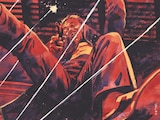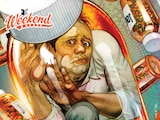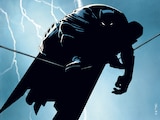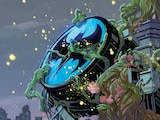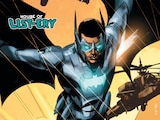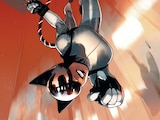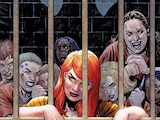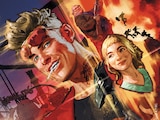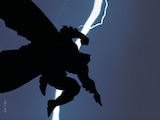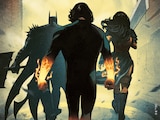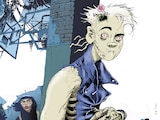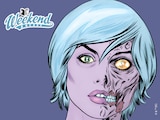Most of us don’t know what it’s like to fly through the sky atop a glowing Cosmic Staff. Yet, after hearing the recently released score for Stargirl, the hit TV series based on the Geoff Johns-created character, we have to wonder if composer Pinar Toprak has. How else to explain the perfectly matched wonder, curiosity and excitement found within Toprak’s frequently soaring compositions? Drawing from both classic adventure movies and American suburban life, the composer has crafted a first season score that manages to feel both sweeping and deeply personal, effectively capturing the show’s suggestion that big things often happen in small towns.
Toprak may not be a name you know, but if you’re a comic book and video game geek, chances are you’ve heard her work. She composed the soundtrack to Captain Marvel and the DC series Krypton, and has also contributed music to Fortnite. Toprak’s worked on more serious-minded fare as well, composing the award-winning score for the 2018 documentary The Tides of Fate and the HBO docuseries McMillions.
With Stargirl’s debut season recently concluded, the soundtrack album now available for purchase and the series poised to make a splash on September 12th as a part of DC FanDome: Explore the Multiverse, it seemed like the stars were well aligned for a chat with Toprak about how she went about composing the music for our newest small screen hero.
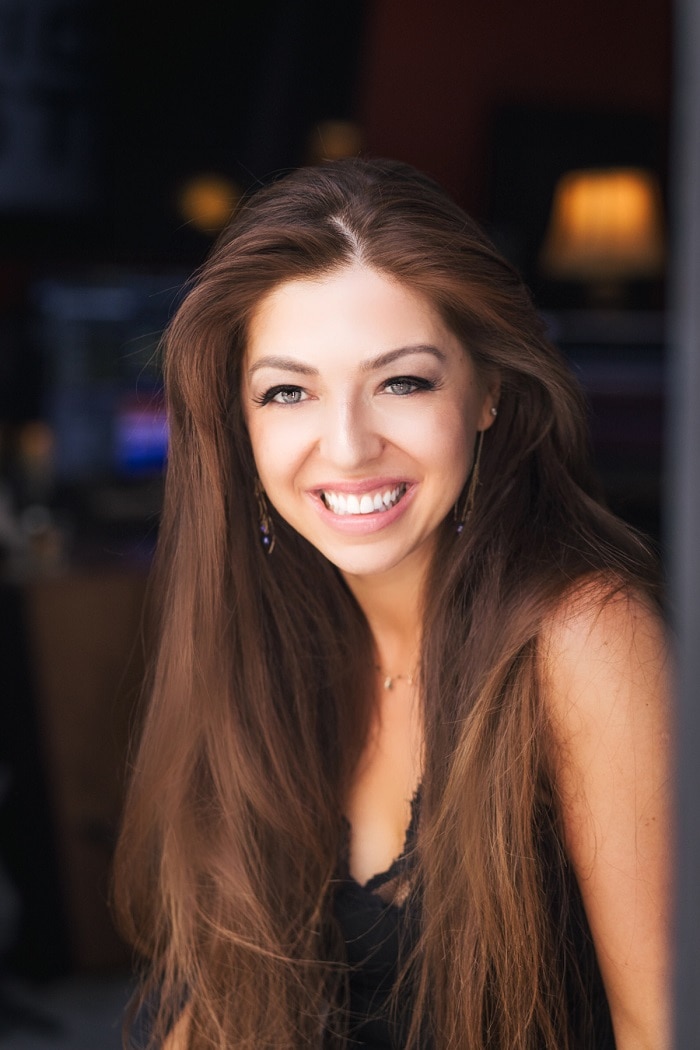
You’ve worked on other comic book projects before, notably Captain Marvel and Krypton. Do you like writing music for superheroes?
Yes, very much! I was quite young when I first watched the ‘78 Donner Superman. It was mesmerizing to me both visually and sonically. The score absolutely captivated me so that really started it off for me. To me, the way I see storytelling is there are films that allow us to get away from our lives and there are stories that make us look at our lives. Superhero films tend to do both for me. They go beyond what we can comprehend in our normal lives, but also reflect on humanity—good vs. evil, morals, strengths, weaknesses. Musically and emotionally there is a lot to work with, which is something I’m particularly intrigued by.
Stargirl really reminds me of one of those youthful Amblin adventure movies of the 1980s, and I feel like your score fits it perfectly. It’s mysterious, empowering and joyful. Was that your intention?
Yes, absolutely. The very first in-person meeting I had with Geoff Johns, he showed me some preliminary ideas. This is before the pilot was even shot. I was talking to him about what he was envisioning for the sound and the style we were going for.
When I heard the style, I told him, "We really need that human touch. Yes, this could be done with a computer, we can have beautiful mockups and things like that, but it needed to have this timeless element to it," so I suggested we have a live orchestra. It's not very common for TV shows to have live orchestra for every episode. It's a beautiful blessing and a gift, to be honest, which doesn't get gifted often. There is definitely a lot of sound design and synth elements in the score as well, but the bulk of it is almost like a Back to the Future sort of style. We wanted to have that American, suburban, timeless kind of writing, especially for the action parts. There are some really traditional callbacks in the writing style. I’m very grateful that Geoff was able to make live sessions happen for us. It definitely made a difference.
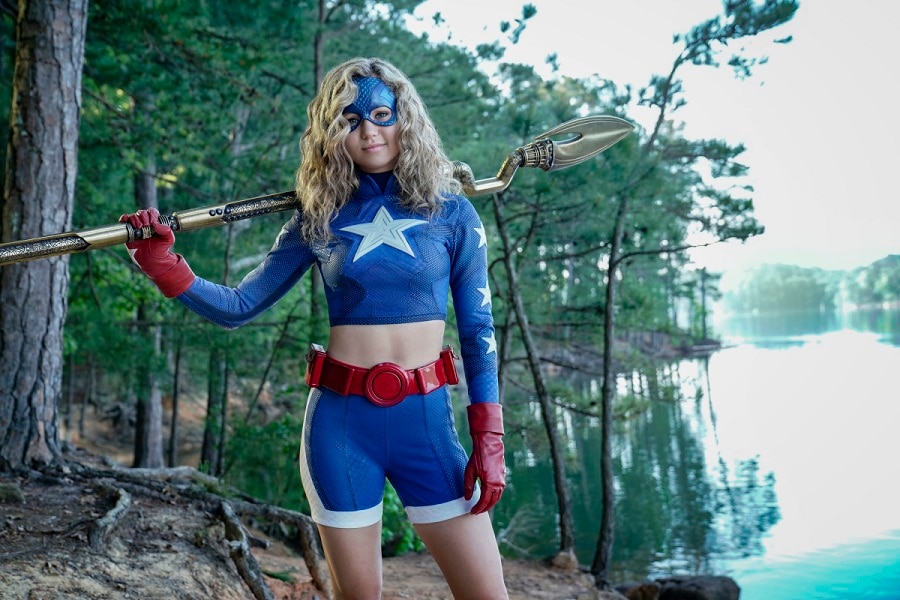
Stargirl isn’t as well known as some of our other superheroes. Was there anything about her that struck you when you first saw the character and that you wanted to reflect in the music?
Admittedly, I didn’t know much about Stargirl at the start. I knew about the name, but I didn't really know where she was standing in the world in detail.
I've been a huge fan of Geoff Johns for a long time and everything that he's done. We met and I learned more about Courtney, the character, who was named after his sister who passed away in a plane accident.
The way he was talking about the character and what he was envisioning for the show, it really touched my heart. Courtney is still growing up and trying to find her place in the world after her family moves, so there’s a lot of this element of her discovering who she’s meant to be (Stargirl) by uncovering her real past. There’s a lot of infectious curiosity and enthusiasm to her, but also a natural strength and heroism both in and out of costume. I wanted to express those sides of Courtney in the score.
One of my favorite moments in the Stargirl pilot and in your score is when Courtney first discovers the Cosmic Staff. It builds up to a moment that’s pure joy and exuberance. Can you talk a bit about that song? It really takes you on a journey.
Thank you. Yes, it was very important to build it in the right way and to make the transition from curiosity, to wonder, then all the way to exuberance. She was feeling pretty lonely in a new town and this staff basically becomes her friend in that moment. Their dialogue is naturally unspoken, so it was important for me to translate their connection into music.
Another song that really stands out to me is “Henry vs. Henry” because it accompanies a moment in the show that’s both tragic and also a little hopeful, and your song fits it perfectly. Was it difficult to achieve that emotional balance?
It can be tricky, but I tried to be careful of keeping that balance between those two emotions. My goal was to convey the juxtaposition of pain and hope—I’m glad that came across. That’s one of my many favorite moments in the show.
You’ve scored both TV and movies. Is there a different approach you take when you’re writing music for something that you know could run for several seasons and span quite a lot of hours versus something that has a set time?
The process of composition and storytelling is similar. The specifics in terms of how we deliver things, that changes. For example, on a video game, there are cinematics that you write in a very similar fashion to scoring a film or any shots seen already. But then I also have to think about gameplay, so that the music fits right into layers that can either get bigger or smaller depending on the gameplay, or something “loopable.” It’s just a different way of thinking from a technical point of view.
With TV writing, again, the processes are very similar. But now you’re thinking more along the lines of—okay, if a TV show spans over 13 episodes, you have 13 episodes to tell a story. You have a longer arc and greater opportunity to really build that character with the themes and sounds. There’s a lot of variety within films there as well. You don’t treat a more intimate film the same way you would treat a larger scoped film. With that said, story and emotions go hand in hand. The goal is to capture emotion and what’s not said on the screen—the subconscious of the story.
Stargirl has a super-villain who plays the violin. I’m curious, would you let the Fiddler play in your orchestra?
I would certainly give her a shot!
Stargirl's debut season can now be streamed in full on The CW website or app. For more on the show and its characters, check out our official Stargirl page here on DCComics.com.
Stream, download or buy the Stargirl Season 1 Original Television Soundtrack by clicking here.

